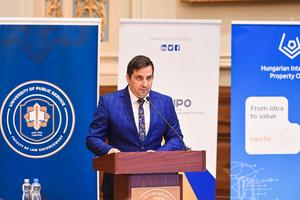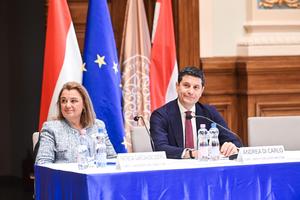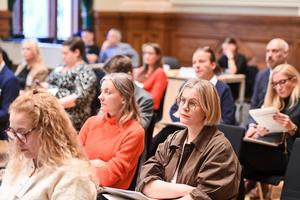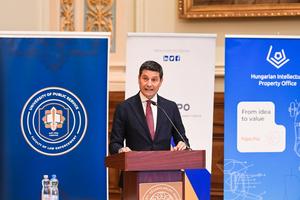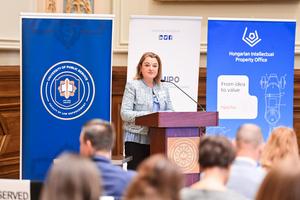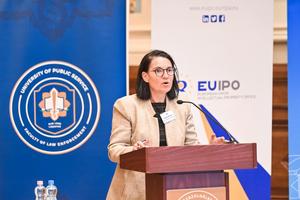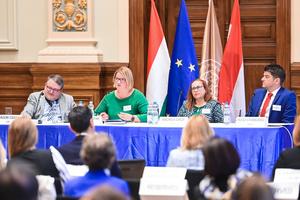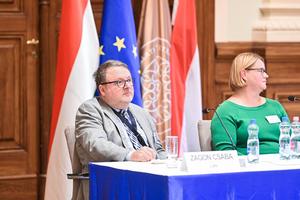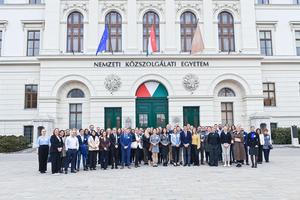The education of law enforcement community members is essential because of their multiple roles in responding to diverse security threats effectively. This is no different in the case of intellectual property (IP) crime. Counterfeiting and goods piracy pose significant risks in many areas of everyday life, including financial losses, and, at the same time, negatively affect industrial sectors that represent substantial values to the European Union (EU) economy. Policymakers have recognised this, and IP-related crime has been identified as a priority area in the joint efforts against organised crime in Europe. It means coordinated measures under the frames of the European Multidisciplinary Platform against Criminal Threats (EMPACT) during the EU policy cycle period of 2021-2025. These efforts focus on combatting and disrupting criminal networks and criminal individual entrepreneurs involved in IP crime and counterfeit goods’ production, sale or distribution (physical and online), explicitly emphasising those goods harmful to consumers’ health and safety, the environment and the EU economy.
It was the topic of the international seminar organised by the European Union Intellectual Property Office (EUIPO) and the Hungarian National Intellectual Property Office (SZTNH). The conference host was the Faculty of Law Enforcement (FLE) of the Ludovika University of Public Service (LUPS) in the Széchenyi Hall of the University on 14 November 2024. The potential impact of the outcomes of this seminar is significant, offering hope for a more effective fight against intellectual property crime.
Rector Gergely Deli opened the event by pointing out that IP-related crimes have severe implications for security, the economy, and global market integrity, among other threats. The law enforcement community plays a vital role in the line of defence; therefore, law enforcement education is critical, developing skills for future public service officers. “The mission of the Ludovika University of Public Service is to train future public servants, military and law enforcement officials, and to develop the skills of current public service employees. Our goal is to prepare professionals who can effectively navigate the complex field of public service,” the rector emphasised. Strengthening collaboration and professional relationships is essential for success in the joint fight against intellectual property crime.
Mr Szabolcs Farkas, Director of the Hungarian Intellectual Property Office, explained that property rights are fundamental to human dignity and innovation. Still, the impact of the problems that arise from this goes beyond financial difficulties. The distrust between economic operators is also a cause for concern, as it carries the risk of many crimes. The Director said that international cooperation between governments and businesses is essential for successful official action. He mentioned the new threats posed by digital piracy and e-commerce to the protection of intellectual property. Raising awareness and supporting professional training in this area is key.
Mr Andrea Di Carlo, Deputy Director of EUIPO, highlighted the fight against intellectual property crime as a priority in the agency’s five-year strategic plan for the coming years. The plan aims to strengthen IP enforcement and highlight the impact of infringements. He underlined, among other things, the so-called enforcement portal, which is already available between EU member states, allowing a rapid exchange of information. He added that the office plans to set up a copyright knowledge centre. The forthcoming strategic plan will focus on engaging young people and under-represented groups to promote understanding of intellectual property rights.
Following the keynote speeches, a panel discussion was moderated by Ms Blanca Arteche, Head of the EUIPO Observatory. The participants, Mr Hugo Chamorro Davalos, Portfolio Officer for Intellectual Property Crime at the European Union’s Criminal Training Training Agency (CEPOL), and Ms Andrea Gróf, Customs Expert at the National Tax and Customs Office (NTCA), Mr Zágon Csaba, Head of the Scientific and International Department of Faculty of Law Enforcement LUPS, and Ms Zsófia Fulajtár, lawyer, member of the Intellectual Property Protection Working Group of the National Intellectual Property Office, discussed the issue of the challenges of developing skills concerning IP-related crime in the context of law enforcement education.
Participants stressed the importance of scientific and competency-based approaches. In their discussions, they highlighted the importance of cooperation between different communities and countries to protect intellectual property in a selective and targeted manner. They agreed that short-time training should emphasise practical experience in addition to more balanced vocational and higher education programmes where better structured legal and theoretical aspects would dominate. The role of legal practitioners and the support of private partners are key to the success of training schemes, as they can bring a wide range of perspectives and experiences to such programmes. The joint efforts of CEPOL and LUPS are also encouraging, which could ensure the inclusion of training courses organised by the agency in the university’s free-choice courses as a micro-credential element. This could be aligned with the European Credit Transfer and Accumulation System for Higher Education (ECTS) and ensure that participants can mobilise the credits when enrolled in a relevant higher education programme. This initiative is in the elaboration phase, and the participants will explain their experiences soon.
The second panel examined the links between intellectual property crime and other organised crime. Among the panellists were Mr Ernesto Bianchi, Director of International Operations at the European Anti-Fraud Office (OLAF), Mr Attila Vágó, Customs Expert at the Ministry of Finance, Mr Balázs Bézsenyi, Senior Prosecutor of the Criminal Division of the Budapest Chief Prosecutor’s Office, and Ms Lilla Bernadett Sipos, Financial Investigator at the NTCA. The panel discussion was moderated by Ms Alexandra Poch, Deputy Director of the EUIPO Observatory. The experts discussed the various features and issues affecting intellectual property protection in the European Union. They stressed that technological progress is moving faster than the legal framework can adapt, bringing new challenges. They also noted the importance of ties between different institutions, such as law enforcement authorities and the EUIPO, in the fight against criminal networks. The discussion focused on the issue of counterfeits, such as fake cigarettes and cleaning products, and the effectiveness of the legal framework for law enforcement.
In the third panel, the links between digital piracy and crime tendencies were analysed by Mr Gábor Németh, legal adviser to the National Media and Infocommunications Authority (NMHH), Mr Péter Horváth, member of the working group on enforcement of intellectual property rights at the Hungarian Intellectual Property Office, and Mr György Kovács, legal expert at the Telecommunications Stakeholder Council. The moderator was Ms Kinga Zugh, Secretary for IPR Enforcement at the Hungarian Intellectual Property Office. The challenges and legal framework of digital piracy were extensively analysed during the panel, highlighting that this issue has become a top priority in recent years. Participants jointly stressed that protecting digital privacy and the initiation of addressing infringements is essential. The Hungarian Media Authority mentioned three ways to deal with infringing content: legal removal, content filtering and removal of search results from search engines. Participants pointed out that the problems of intellectual property crime are not new but that technological advances make it more difficult to identify offenders and deal effectively with infringements. The limited capacity of national authorities and the complexity of the legal framework also make it challenging to achieve immediate solutions.
Participants agreed that they should continue the joint thinking on sharing best practices and educational methodologies to achieve the highest possible impact on IP infringements.
Text: Éva Harangozó and Zágon Csaba
Photo: Dénes Szilágyi
